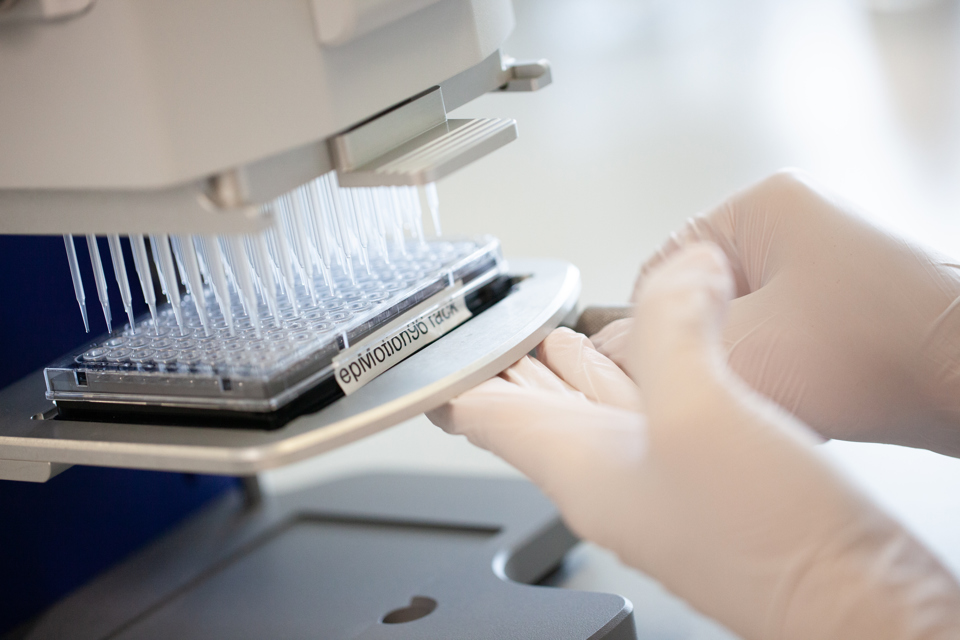In early 2020, Mads Albertsen and his research group were deep into the extensive research project ‘Microflora Danica’, funded by the Poul Due Jensen Foundation, whose aim is to map the entire microbiome (such as bacteria) of Denmark through advanced genetic sequencing.
“We quickly saw the potential of using our world-class laboratory and sequencing methods for a fast, efficient genetic sequencing of the COVID-19 virus. Following a quick accept from the Foundation, we entered into a collaboration with some of the Danish hospitals and the State Serum Institute and started working on transferring our efforts onto sequencing positive COVID-19 tests to identify new variants of the virus,” Mads Albertsen explains.
In the spring of 2020, the researchers sequenced between 100 and 200 samples per week. A year later, the number is 1,000-1,500 a day, and the group has been central to the identification and tracking of the mink-related variants in the fall of 2020 (including providing data that led to the quick reopening of North Denmark in November 2020) and in the focused efforts to track the spread of the variants of concern B.1.1.7, B.1.351 and P.1 in Danish society.

